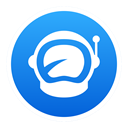Top Fiddler Alternatives for Web Debugging and Inspection
Fiddler has long been a go-to tool for web developers and QA professionals, offering a powerful Web Debugging Proxy that logs all HTTP(S) traffic, allows inspection, and even manipulation of data. Its ability to debug traffic from virtually any application, coupled with its freeware status, has made it incredibly popular. However, with evolving needs and diverse operating system preferences, many are now seeking a robust Fiddler alternative. Whether you need more advanced features, cross-platform compatibility, or open-source solutions, there are excellent options available.
The Best Fiddler Alternatives for Your Workflow
If you're looking to explore different web debugging proxies, HTTP monitors, or API testing tools that can replicate or even enhance Fiddler's capabilities, you've come to the right place. We've compiled a list of the top alternatives that cater to various needs, from simple traffic sniffing to complex penetration testing.

Charles
Charles is a commercial reverse proxy and HTTP proxy and monitor that effectively displays all HTTP(S) traffic to/from your computer. It's an excellent Fiddler alternative for users on Mac, Windows, and Linux, offering robust HTTP Monitoring and Debugger features.

mitmproxy
mitmproxy is a powerful, free, and open-source SSL-capable man-in-the-middle proxy for HTTP. As a strong Fiddler alternative, it provides a console interface that allows traffic flows to be inspected and edited on the fly, available on Mac, Windows, and Linux, with strong Debugger and SSL capabilities.

OWASP Zed Attack Proxy (ZAP)
The OWASP Zed Attack Proxy (ZAP) is an easy-to-use integrated penetration testing tool for finding vulnerabilities in web applications. This free and open-source Fiddler alternative is ideal for security-focused users on Mac, Windows, and Linux, offering strong Proxy support and Penetration Testing features.

Advanced REST Client (ARC)
Advanced REST Client (ARC) is a free and open-source API testing tool for web developers to create and test custom HTTP requests. It functions across Mac, Windows, Linux, Chrome OS, and Chromium, making it a versatile Fiddler alternative for REST API development with features like Full headers control and being Electron-based.

SmartSniff
SmartSniff is a free packet sniffer for Windows that captures TCP/IP packets and displays them as conversations. For users specifically needing a lightweight and portable sniffer on Windows, SmartSniff serves as a simple and effective Fiddler alternative.

NetworkMiner
NetworkMiner is a free and open-source Network Forensic Analysis Tool (NFAT) for Windows, Mac, and Linux that can parse PCAP files and regenerate transmitted files. It's a robust Fiddler alternative focusing on Network Monitoring and sniffing for forensic analysis.

HTTP Toolkit
HTTP Toolkit is a freemium, open-source suite of tools for debugging, testing, and building with HTTP(S). Available on Mac, Windows, Linux, and Web, it’s a modern Fiddler alternative offering features like HTTP mocking, one-click interception, and a built-in Debugger.

HttpRequester
HttpRequester is a free and open-source tool for easily making HTTP requests (GET/PUT/POST/DELETE), viewing responses, and keeping a history of transactions. It serves as a great Fiddler alternative, particularly for those who work with Firefox, offering a Debugger, REST API support, and Web Development tools.

HTTP Debugger
HTTP Debugger Pro is a commercial, professional HTTP Sniffer and Analyzer for Windows developers. It's a direct competitor and strong Fiddler alternative, providing advanced HTTP Monitoring and support for TFS.

Proxyman
Proxyman is a high-performance commercial macOS app designed for developers to view HTTP/HTTPS requests from apps and domains. For Mac users, it's an excellent Fiddler alternative, boasting features like Breakpoints, Debugger, Developer Tools, iPhone debugging, and native application performance.
Each of these Fiddler alternatives brings its own strengths to the table, whether it's specialized features, cross-platform compatibility, open-source accessibility, or a focus on specific use cases. We encourage you to explore these options and select the one that best aligns with your development workflow and debugging requirements.